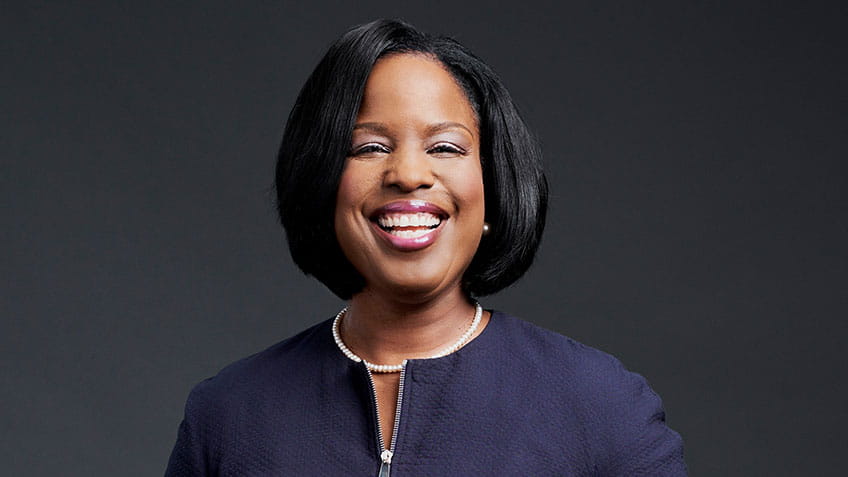Roslyn Brock ’99

Roslyn Brock ’99
Chairman Emeritus, NAACP
Vice President, Advocacy and Government Relations, Bon Secours Health System
Whether in business or during her personal time, Roslyn Brock '99 is out to remind the world not to be afraid to take risks. Her mantra is “Courage will not skip this generation.”
“Healthcare advocacy is an exciting field because you’re making a difference for people where they need it most,” says Brock of her role as vice president of advocacy and government relations at Bon Secours Health System. “When we’re concerned about the overall health and well-being of communities and individuals, the social impact is much greater. There’s a pursuit of a greater good rather than solely a focus on profit margins. It’s important we never forget why we started the business in the first place.”
Brock has known since childhood that she wanted to work in healthcare. “In junior high school, an occupational aptitude test revealed my interests were best suited for a career in law or medicine,” she recalls. “I researched careers in the medical field and decided that I wanted to be a hospital administrator or a health services executive. Once I made my decision, I never wavered. My yearbooks from junior high through college reflect that career decision.” This deeply entrenched desire lined up nicely with Bon Secours, a Catholic health system that revolutionized healthcare in the 19th century, when its sisters provided treatment by staying in the homes of their patients.
“I was impressed by the faith-based community work they were doing to engage and improve health and well-being, particularly for the poor and dying,” says Brock, who began with the organization by building out its fund development apparatus. She eventually matriculated to leadership roles in diversity, community health and advocacy and government relations. Her interest in healthcare operations led to the executive director role of Bon Secours Community Works, a position she was particularly proud to hold.
“The sisters pioneered population-based health strategies in southwest Baltimore long before anyone recognized its effectiveness,” she says. “They coordinated partnerships and leveraged resources to bring workforce development, a woman’s resource center, GED training, financial literacy, child care, employment opportunities and housing to community residents.”
Brock’s commitment to community engagement doesn’t end with her workday, though. She has been a volunteer with the NAACP for more than 30 years and was named chairman of its national board of directors in 2010, making her the youngest person and fourth woman to hold the position. At the NAACP, she led organizational efforts to reform the nation’s healthcare system and to recruit and train a new generation of civil-rights leaders by creating the Leadership 500 Summit.
“As a civil and human rights leader, I’ve often had to ask additional probing questions, to identify and address the root causes of insidious societal problems,” says Brock, adding that Kellogg instilled in her an ability to use the power of data to make tough leadership decisions. “I never engage in a meeting without exploring a full range of options,” she says.
That initiative to root out problems at the source is especially crucial as the healthcare industry experiences rapid evolutions.
Being courageous and data driven is key in healthcare and social impact. “Healthcare is experiencing a period of rapid transformation with data integration. The industry is highly regulated with external forces driving the provision of healthcare services and data management,” explains Brock. "It’s the only regulated industry with a mandate to provide services to consumers regardless of their ability to pay. We must ensure patients get affordable healthcare, in the right place and at the right time with state-of-the-art technology. There’s never a dull moment.”
